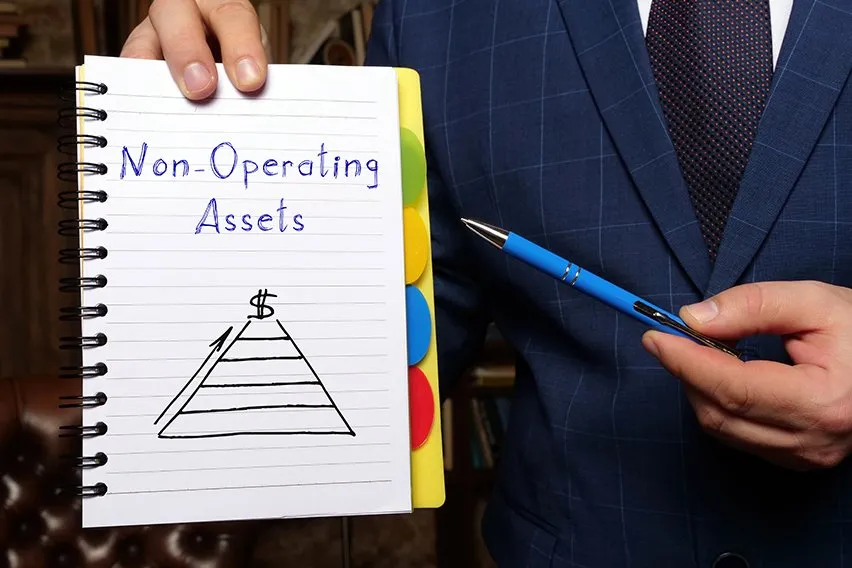9 Accounting Tips for Small Businesses

The accounting tips for small businesses can help you figure out long-term goals, ride financial ups and downs and increase your profits. Moreover, efficient bookkeeping strategies can help you stay out of trouble with the IRS.
What this article covers:
- How Do Small Businesses Keep Track of Accounting?
- How Do You Keep Books for a Small Business?
- Do You Need an Accountant for a Small Business?
How Do Small Businesses Keep Track of Accounting?
• Track Your Expenses
By tracking your business expenses, you can increase profit margins and optimize your income tax return. Instead of calculating expenses every two weeks for payroll processing, you can keep records of the everyday business expenses.
Regular expense tracking will give you a better idea of how much you’re spending and help you devise money management strategies.

• Organize the Records
Stay organized throughout the year, instead of scrambling at the end during tax season.
Develop a method of handling your data, actively managing your cash flow and reviewing your monthly and bank statement regularly. Organize your receipts (including receipts for charitable contributions) and accurately record deposits.
Block out a weekly time to get your paperwork in order and avoid letting the receipts pile up.
• Set Up Separate Bank Accounts
Keep a separate bank account for your personal and your business expenses. If you’re a solopreneur or independent contractor, chances are you’re responsible for everything, including the accounting. To avoid confusion during tax season, set up a separate bank account for your business.
Consider getting a separate credit card to pay for business expenses. This will help you track the business-related expenditure and separate it from your personal finances.
• Learn Accurate Invoicing
Accurate invoicing is the key to getting paid in a timely and organized manner.
Take some time to set up an invoicing system, including tracking the work completion, deciding the frequency of invoicing, defining payment methods and creating professional-looking invoices.
• Create Profit and Loss Statements
How do you know if your business is losing money or profitable? Profit and loss statements is a recap of your business expenses, costs and revenues on specific dates. This can be monthly, quarterly or annually.
Tracking and reviewing your income and expenses can help you assess the health of your business and plan for future growth. You can follow our guide on how to make an income statement to accurately evaluate your business’s financial health.
• Follow up on Accounts Receivables
Accounts receivable is the money that a business should receive from its customers for the goods or services it provided. It’s the fuel that keeps your business running.
Late and unpaid bills can impact your cash flow. Moreover, the longer it takes to send an invoice, the less likely it is that your payment will be sent.
Create a solid internal structure for following up on your accounts receivables. Pick a day to process and mail your invoices and another date to follow up on aged accounts receivables. Extend credit on moderate terms, if needed and make sure to document everything to pursue payment through a collection agency or the court.
• Plan for Major Expenses
Creating a budget for expenses like office supplies, inventory and repairs and maintenance can help your business function efficiently.
One major expense that you must account for is taxes. You must file your taxes on time to avoid penalties from the IRS. Based on the monthly sales, set aside some money to pay for your taxes. This will help you avoid having to outlay a significant amount of funds at the end of the year.
• Take Advantage of Small Tax Deductions
According to the NSBA Small Business Taxation Survey, filing and completing their federal income tax returns is one of the top concerns for small business owners.
There are a number of small business tax deductions that you can take advantage of to minimize your tax bill. Some common tax deductions include the cost of goods sold, employee pay and benefits, auto maintenance, travel expenses, marketing and advertising, etc.
• Use an Accounting Software
If you don’t have the budget to hire an accountant, consider opting for a cloud-based accounting software to send invoices, track time, calculate taxes, record expenses and pull reports, all online.
How Do You Keep Books for a Small Business?
Once your business is registered and starts making transactions regularly, it’s time to prepare the bookkeeping system for your business. The financial books allow you to review your income and expenses, take control of your finances and make smart decisions.
Here are the steps to set up books for a small business.
1. Choose an Accounting Method
The two primary methods are accrual accounting and cash accounting. The difference between the two methods is how they record the inflow and outflow of cash.
While cash accounting reports the revenues and expenses according to real-time cash flow i.e. when they are received and paid, accrual accounting recognizes income and expenses when they are earned or incurred.
2. Record Transactions
You can choose to record the transactions by hand, hire an accountant or choose an accounting software to automate your accounting process.
While recording by hand may be the cheapest solution, it can be time-consuming and prone to errors. This is the reason a majority of small business owners either hire accountants to compile financial statements or opt for small business accounting software to ensure efficient recordkeeping.
3. Prepare Chart of Accounts
When you start a new business, you need to set up a chart of accounts to journal transactions in any of the five categories including assets, liabilities, expenses, revenue and equity. This chart of accounts is used to gather statements, analyze progress, and locate transactions.
4. Open a Business Bank Account
To separate your business’s finances from your personal money, open a separate bank account for your business. This helps you with small musiness tax filing as you can deduct business expenses on your tax return, ensuring accuracy in your filings.
Reconcile business bank account statements with your financial books. Ideally, all transactions should match. However, when you see certain items such as a bank fee that you may not have recorded in your books, you will need to reconcile your records.

Do You Need an Accountant for a Small Business?
Successfully managing your business also requires managing finances. When you’ve just started and have limited funds, you might consider handling your accounting activities yourself. However, once the business has sufficient discretionary funds, it’s best to outsource these tasks to an accountant or a bookkeeper.
Accountants are members of statutory organizations and registered accountants might call themselves CPAs (Certified Public Accountants) or CAs (Chartered Accountants). They are primarily responsible for preparing statutory returns, advising on legal entity structure and giving general business advice.
Bookkeepers are responsible for organization, recording and reporting of financial transactions of a small business. Some of their key tasks include:
- Keeping track of transactions
- Sending out invoices
- Handling the accounts payable
- Monitoring the cash flow
- Preparing the books for the accountant
There are substantial differences in the skills and costs of accountants and bookkeepers. While a bookkeeper is focussed on day-to-day transactions, the accountant concentrates on the strategic financial operations. If you’re planning to outsource your accounting activities, choose someone who is the best match for your business.
RELATED ARTICLES

 Restaurant Accounting: A Step by Step Guide
Restaurant Accounting: A Step by Step Guide What Is Non-Operating Income? 3 Things You Need to Know
What Is Non-Operating Income? 3 Things You Need to Know Liquidity in Small Business: What It Means and Why It Matters
Liquidity in Small Business: What It Means and Why It Matters What Is Inventory Valuation and Why Is It Important
What Is Inventory Valuation and Why Is It Important What Is Small Business Accounting? A Beginner’s Guide
What Is Small Business Accounting? A Beginner’s Guide Am I Insolvent? The Signs of Insolvency for Small Businesses
Am I Insolvent? The Signs of Insolvency for Small Businesses